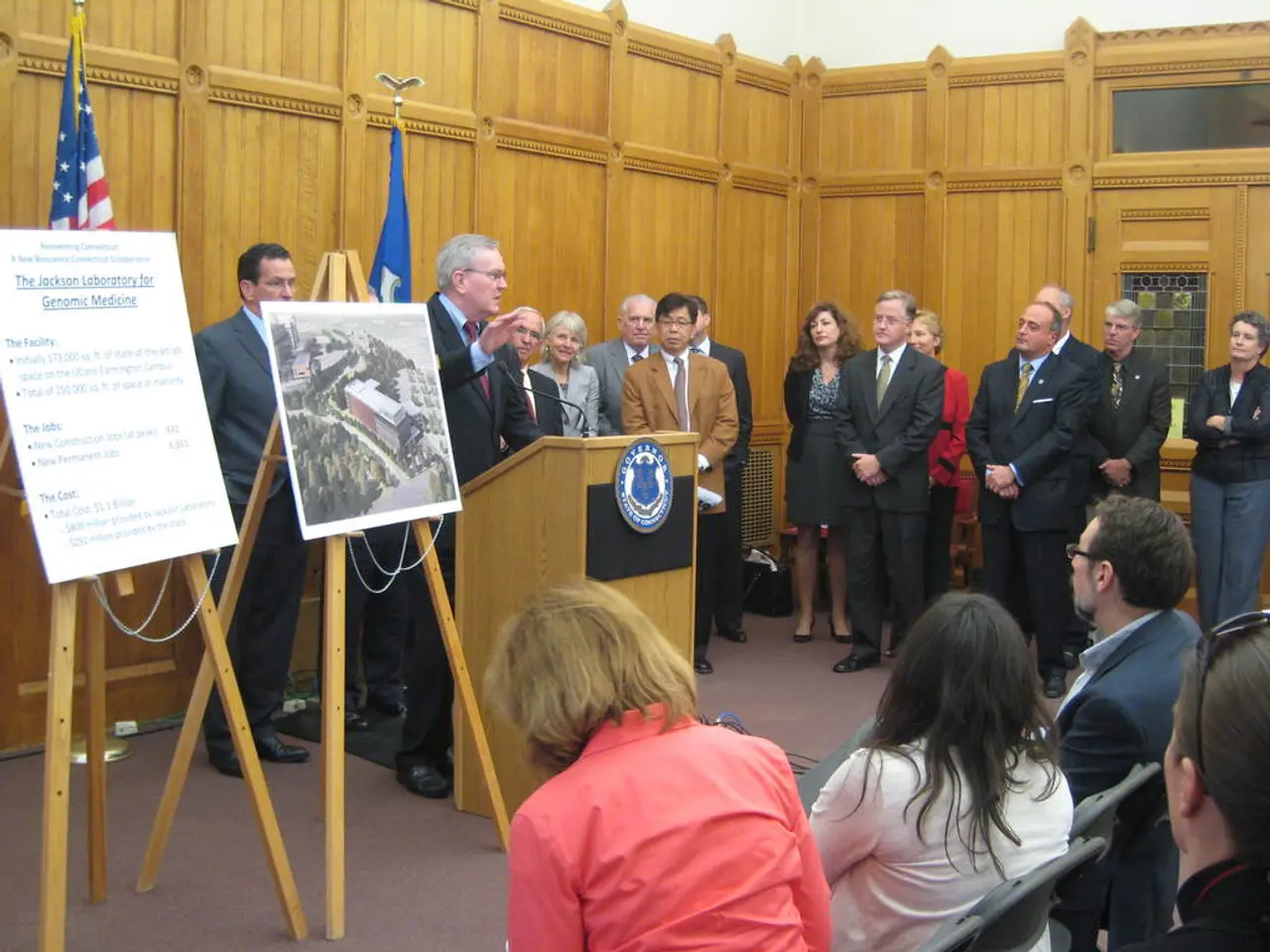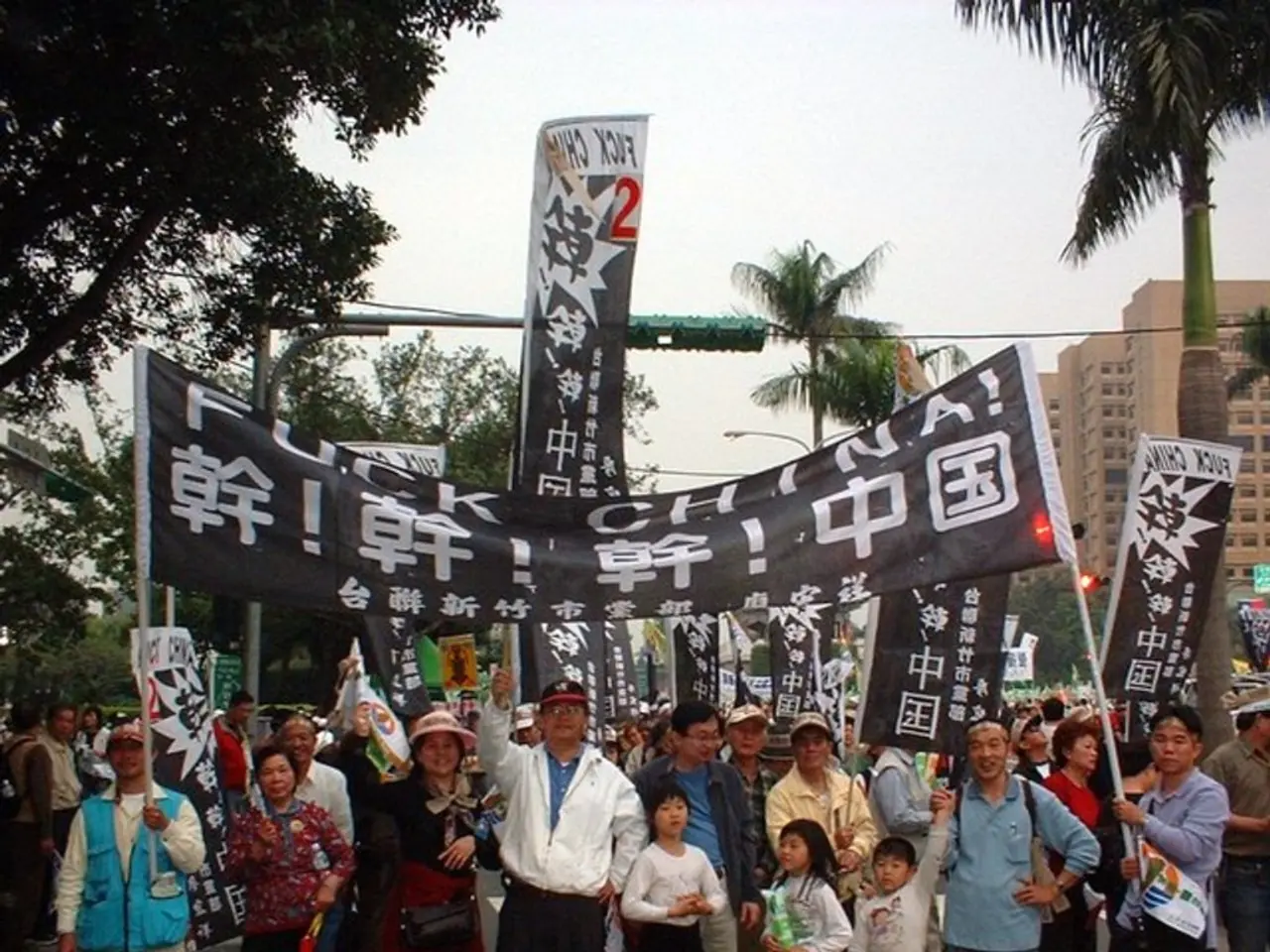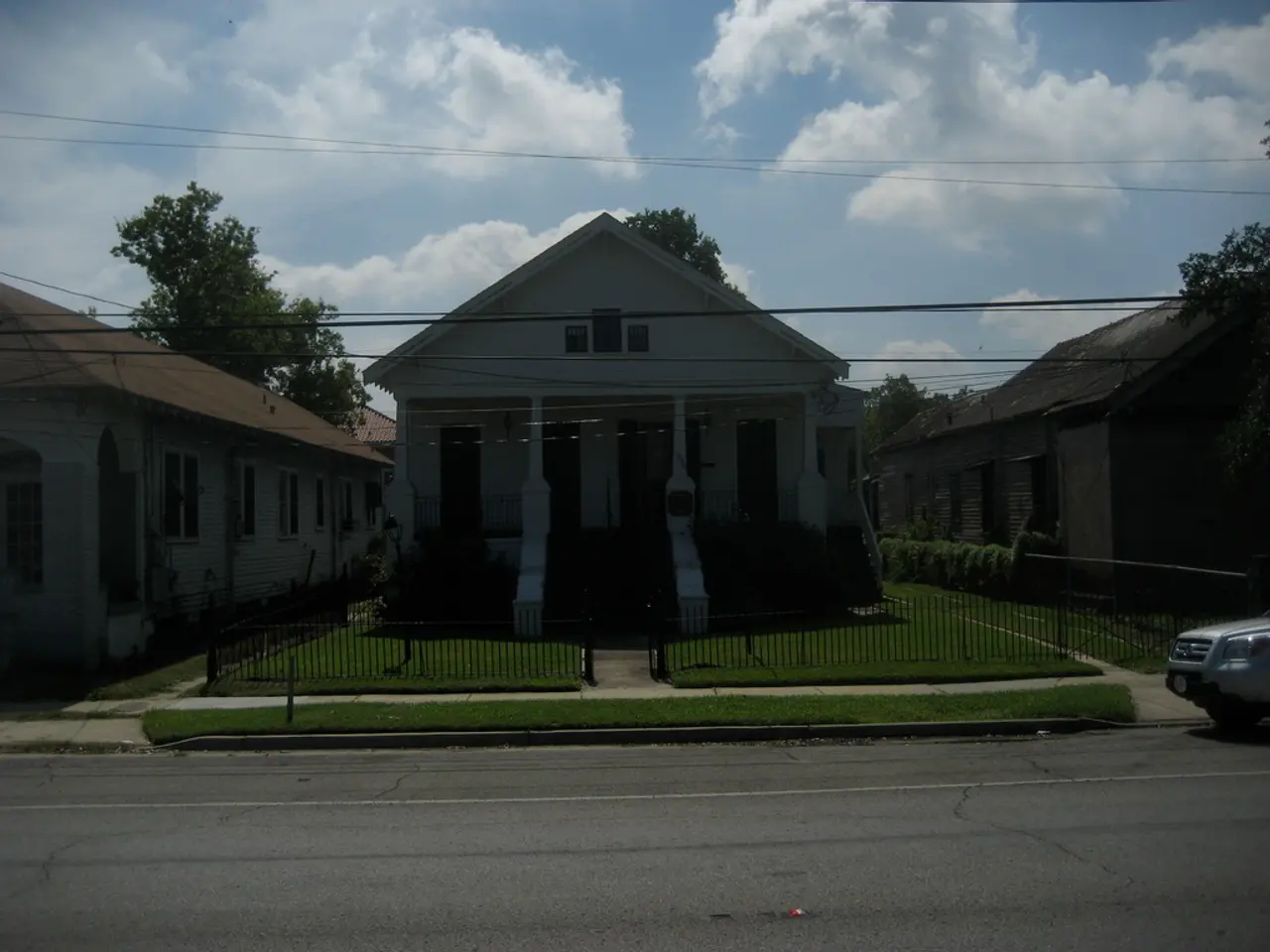Criticizes AfD's blockade as a danger to democratic values by Ramelow
In the heart of Germany, the political landscape of Thuringia is currently under strain due to the Alternative for Germany (AfD) party's controversial tactics. The party, which became the strongest in the 2024 Thuringian state elections, has been using its position to obstruct democratic processes within the state parliament.
The AfD's strategy involves leveraging the plenum as a platform for spreading hate speech and undermining democratic institutions. This political stance has raised concerns about the erosion of democratic norms and the spread of right-wing extremism, posing a significant challenge to effective governance.
Thuringian Minister-President Bodo Ramelow, who is aligned with the Left Party, has expressed his concerns about this situation. He has pointed out that the AfD's blocking minority in the state parliament has been used to obstruct legislative processes, which could potentially jeopardize the democratic system in Thuringia.
The election of the Thuringian state parliament president serves as a prime example of the AfD's blocking strategy. By obstructing the process, the party has created uncertainty and instability in the political sphere.
The AfD's tactics have also been criticized for driving the party's overall direction, which Minister-President Ramelow describes as state subversion. Specifically, he has labelled Björn Höcke, a member of the AfD, as a "dangerous man."
Despite the challenges, Minister-President Ramelow has not ruled out the possibility of a coalition between the CDU, BSW, and SPD, affectionately referred to as the "Blackberry coalition." However, he has warned that if the AfD does not make a proposal again for the occupation of constitutional judge positions, there could be a significant threat to Thuringia. If the AfD follows through with this strategy, Thuringia might not be able to appoint any judges or public prosecutors for the next five years.
As the situation in Thuringia continues to unfold, the need for concerted action to counter the AfD's strategies and protect democratic institutions and processes becomes increasingly apparent. The future of Thuringia's democratic system hangs in the balance.
**Key Points:**
1. **AfD's Influence**: The party has successfully mobilized voters by promoting revisionist interpretations of the past, aiming to delegitimize liberal democracy and alter the culture of remembrance. 2. **Blocking Strategy**: The AfD's blocking minority in the state parliament has been used to obstruct legislative processes, posing a significant challenge to effective governance. 3. **Democratic Concerns**: The rise of the AfD in Thuringia reflects broader trends of rising right-wing extremism in eastern Germany, which heightens concerns about antisemitism and xenophobia. 4. **Potential Actions**: There are discussions about banning extremist political organizations or withdrawing state funding, which could impact the AfD's operations. 5. **Threat to the Democratic System**: Thuringia's Minister-President, Bodo Ramelow, has expressed concerns about a potential threat to the democratic system in Thuringia from the AfD. If the AfD does not make a proposal again for the occupation of constitutional judge positions, there could be a significant threat to Thuringia.
War-and-conflicts: The rise of the Alternative for Germany (AfD) party in Thuringia reflects broader trends of rising right-wing extremism, posing a significant challenge not only to effective governance but also to the culture of remembrance, hinting at potential future conflicts.
Politics and general news: Recent political developments in Thuringia, particularly the AfD's tactics, have raised concerns about the erosion of democratic norms, threatening the stability of the democratic system and making headlines in general news outlets.








